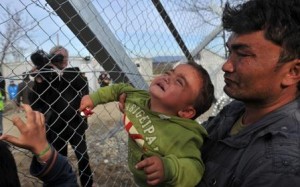Latest News
EU seeks to deport 80,000 Afghan refugees
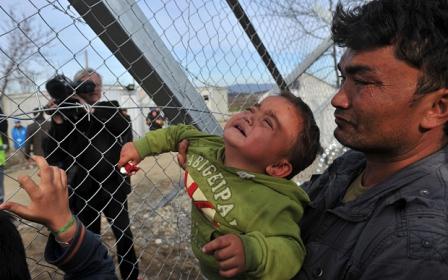
More than 80,000 Afghans will need to be deported from Europe “in the near future” under a secret EU plan, amid warnings of a new influx as parts of the country fall back under Taliban control.
The European Commission should threaten to reduce aid that provides 40 per cent of Afghanistan’s GDP unless the “difficult” Kabul government agrees to the mass removal of tens of thousands of failed asylum migrants, a leaked document suggests. It admits the threat, if carried through, could result in the collapse of the fragile state.
The Afghan elite will be rewarded with university places in Europe, under a new EU strategy to use aid and trade as “incentives” to secure deportation agreements for economic migrants from “safe” areas of Afghanistan.
The plan is revealed in a joint “non-paper” discussion document, marked EU Restricted, which was prepared by the European Commission and its foreign policy arm, the External Action Service, and sent to national ambassadors on March 3.
Record violence amid a Taliban insurgency, with 11,000 civilian casualties last year, and economic failure means there is a “high risk of further migratory flows to Europe,” it warns. There are 1.1 million internally displaced Afghans and 5.4 million sheltering in Pakistan and Iran, whose situation is “precarious without reliable long-term perspectives.”
In October, the European Union is hosting an international donor summit for Afghanistan, with the intention of raising enough aid for the period 2017-20 to keep flows at their current levels.
Jean-Claude Juncker’s officials propose using the summit as “leverage” to secure a deportation deal, noting that the EU has pledged more to Afghanistan than any other country with €1.4 billion earmarked until 2020.
“The EU should stress that to reach the objective of the Brussels Conference to raise financial commitments ‘at or near current levels’ it is critical that substantial progress has been made in the negotiations with the Afghan Government on migration by early summer, giving the member states and other donors the confidence that Afghanistan is a reliable partner able to deliver,” it says.
Under a section entitled “Afghan interests,” it says President Ghani’s government is “highly aid dependent”. “Without the continued high levels of international transfers… [it] is unlikely to prevail, as it is being faced by multiple security, economic and political challenges”.
Some 176,000 Afghans claimed asylum in the EU last year, with around six in ten eligible, a rate that has risen as the security situation deteriorates. They make up a quarter of refugees landing in Greece.
The paper, which was obtained by the Statewatch civil liberties website, says the EU’s co-operation with Afghanistan so far has been “difficult and uneven”. Despite President Ghani’s public statements, “other members of the Government do not appear to facilitate the return of irregular migrants, while attempting to re-negotiate conditions to restrict the acceptance of returnees.”
In exchange for accepting “forced returns” of economic migrants from designated “safe areas” of the country, European universities could offer places to Afghan students and researchers under the Erasmus+ scholarship scheme, the paper says, under a section entitled: “Possible components of EU incentives package”.
The document cautions, however, that “the risk that those students apply for asylum once in the EU and make their outmost not to return is however very high, as demonstrated by several cases recently.”
The CAPD development deal, which commits the EU to help in rural development, health, education and counter-drugs programs for a decade, could also be used as a bargaining chip to get a deportation agreement, the document says.
The EU will also provide training and healthcare to those who are deported.
It admits that identifying the safe areas of Afghanistan when processing asylum claims is “not obvious, given the rising insecurity in many provinces”.
The plan also suggests using the laissez passer, a legally controversial deporting document issued by the EU to migrants who have lost or destroyed their own papers.
The EU has publicly embraced a strategy of chequebook diplomacy as it struggles to contain the biggest migrant crisis since 1945.
The proposed deal appears similar to a gambit rejected by African leaders in Malta last year, in which the EU offered €1.8 billion in aid , university places and looser conditions for holders of diplomatic passports in exchange for accepting the forcible deportation of hundreds of thousands of African economic migrants. In the end, leaders settled on a voluntary scheme of returns.
It follows a controversial deal on Friday with Turkey, which was awarded €6 billion and visa liberalisation in exchange for the near-automatic return of all asylum seekers reaching the Greek islands.
Earlier this month Theresa May won a Court of Appeal case to resume deportations to Afghanistan under a separate arrangement. Judges ruled that while several provinces are dangerous, Kabul is safe enough for returns.
Germany, a major destination for Afghan migrants, is pushing hard for its own deportation agreement.
Source: Telegraph

Latest News
IEA rejects Russia’s claims of foreign militants in Afghanistan
He further called on Russian authorities to reassess their understanding of the situation in Afghanistan and to update their reports based on objective facts on the ground.

The Islamic Emirate of Afghanistan (IEA) has strongly rejected recent claims by Russia regarding the presence of international terrorist groups inside Afghanistan, calling the allegations unfounded and based on inaccurate information.
Speaking on the issue, Zabihullah Mujahid, the spokesperson of the Islamic Emirate, said Afghanistan is fully secure and no foreign armed groups are operating within the country.
He stressed that the entire territory of Afghanistan is under a single authority, leaving no space for external groups to carry out activities.
“We regret that such claims are made from sources in Russia,” Mujahid said, adding that these allegations date back to the past, including the period of the U.S. occupation, and have no basis in current realities. “We categorically reject these assertions.”
He further called on Russian authorities to reassess their understanding of the situation in Afghanistan and to update their reports based on objective facts on the ground.
Latest News
Escalating violence in Pashtun regions during Ramadan raises concerns
He described these incidents as grave violations of international law and acts that have deepened fears among affected communities.

Amid the holy month of Ramadan, violence has continued in several Pashtun areas, raising serious concerns among local communities.
In a post in X, Manzoor Ahmad Pashteen, the founder and head of Pashtun Tahafuz Movement, noted that in Tirah, four Pashtun civilians were reportedly killed and six others injured during operations carried out by the Pakistani army. Protests that followed in Orakzai were also met with force, leaving four more individuals seeking peace and justice injured.
In Afghanistan’s Behsud district, 17 civilians, including women and children, were reportedly killed in airstrikes attributed to Pakistani forces, he stated.
He described these incidents as grave violations of international law and acts that have deepened fears among affected communities.
In recent days, additional casualties have been reported in Rozmak, Shawal (North Waziristan), Mubarak Shahi village (Mir Ali), Speen Wam, Abakhel village, Dosali, Takhte Khel (Lakki Marwat), Azam Warsak (South Waziristan), Bajaur, and Bannu, where clashes between security forces and armed groups have resulted in deaths and injuries among civilians, Pashteen said.
He stated that the ongoing violence reflects longstanding grievances in Pashtun regions. The Pashtun Tahafuz Movement (PTM) has stated that it will continue to oppose what it describes as injustices against Pashtun communities and will stand in solidarity with those affected.
Latest News
UNAMA reports civilian casualties from Pakistani airstrikes in Afghanistan
UNAMA urged all parties to end hostilities, protect civilians, and uphold international law principles of distinction, proportionality, and precaution to prevent further civilian harm.
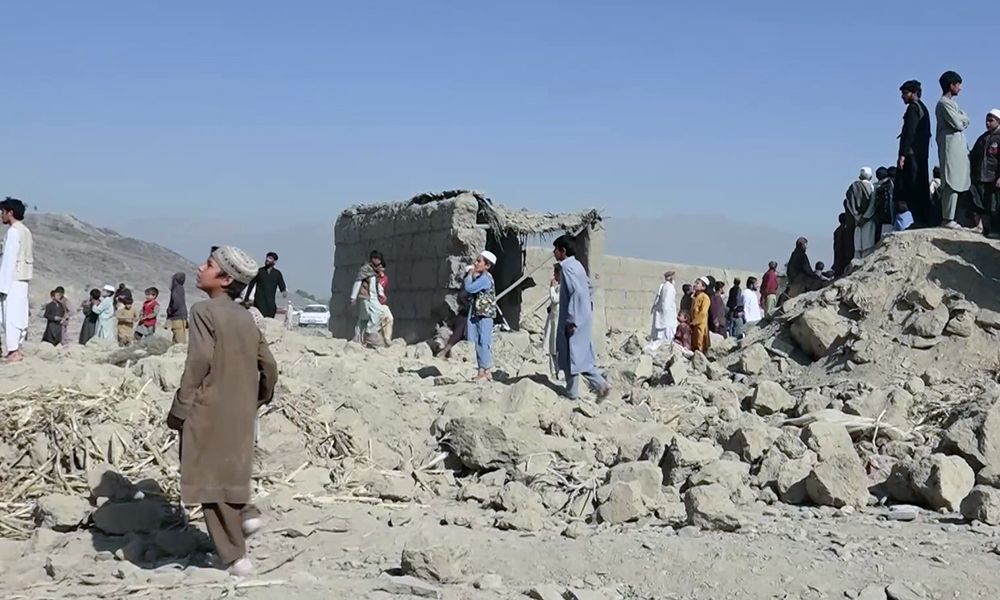
The United Nations Assistance Mission in Afghanistan (UNAMA) has confirmed credible reports of civilian casualties following overnight Pakistani airstrikes inside Afghanistan on 21–22 February.
Airstrikes in Behsud and Khogyani districts of Nangarhar province, carried out between approximately 23:45 on 21 February and 00:15 on 22 February, have reportedly killed at least 13 civilians and injured seven others, including women and children.
Pakistani forces also struck Barmal and Urgun districts in Paktika province.
In Barmal’s Marghai area, an airstrike on 21 February around 23:15 hit a madrassa and partially damaged a nearby mosque.
In Urgun’s Dahna area, an airstrike at approximately 23:30 partially destroyed a vacant private residence. No civilian casualties have been reported from these strikes.
UNAMA urged all parties to end hostilities, protect civilians, and uphold international law principles of distinction, proportionality, and precaution to prevent further civilian harm.
-
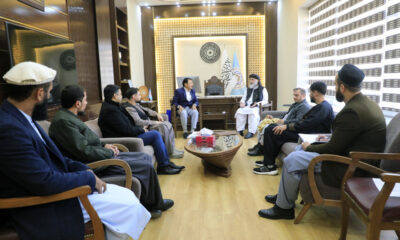
 Latest News4 days ago
Latest News4 days agoAfghanistan welcomes investment and technology partnerships with India
-

 Sport4 days ago
Sport4 days agoAfghan Peaks founder climbs Aconcagua to promote Afghanistan’s mountain potential
-

 Latest News3 days ago
Latest News3 days agoIndian customs seize Chinese walnuts falsely declared as Afghan
-

 Business4 days ago
Business4 days agoPakistan allows re-export of stranded Afghan transit cargo
-
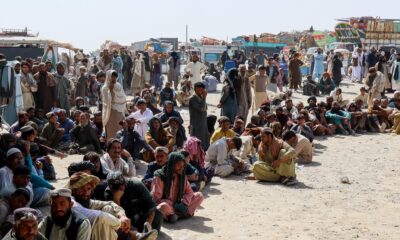
 Latest News3 days ago
Latest News3 days agoPakistan’s Punjab to send home 20 more Afghans in repatriation drive
-

 Latest News4 days ago
Latest News4 days agoPakistan signals possible air strikes as Kabul releases Pakistani soldiers in goodwill move
-

 Latest News2 days ago
Latest News2 days agoMoldova bans Afghan airlines over safety concerns
-

 Latest News1 day ago
Latest News1 day agoAfghanistan vows retaliation after Pakistan launches air strikes

